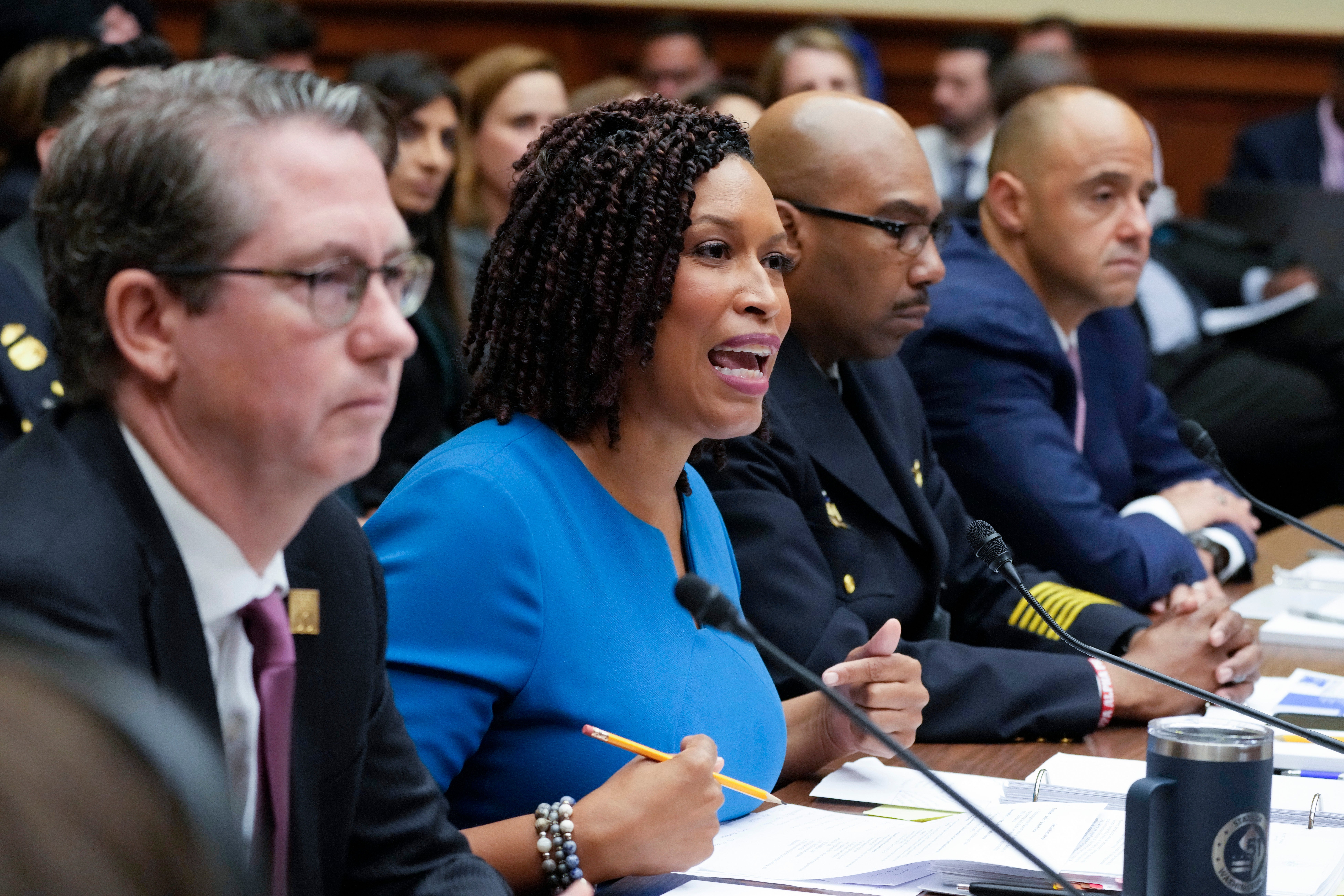Senate votes to block 2nd DC crime law; Biden veto expected
The Senate has voted to overturn a District of Columbia law enacted last year to improve police accountability, the second time this year that Democrats have joined with Republicans to try and block the district’s crime regulations

The Senate has voted to overturn a District of Columbia law enacted last year to improve police accountability, the second time this year that Democrats have joined with Republicans to try and block the district’s crime regulations.
President Joe Biden is expected to veto the resolution, which the House passed last month. The White House said in a statement of policy that the president doesn’t support every provision of the D.C. law, which was passed in the wake of the police killing of George Floyd in 2020. But Biden supports “commonsense police reforms” that are part of it, such as banning chokeholds, limiting use of deadly force, improving access to body cameras and requiring increased de-escalation training.
“Congress should respect the District of Columbia’s right to pass measures that improve public safety and public trust,” the White House said.
Still, eight Senate Democrats supported the GOP-led effort to overturn the law, as members of both parties have expressed concern about rising violent crime rates in cities nationwide. In D.C., homicides in the city had risen for four years straight before they dropped around 10% in 2022. The 2021 murder count of 227 was the highest since 2003.
“Congress must exert our constitutional authority to keep our nation’s capital safe,” said freshman Sen. J.D. Vance, R-Ohio, who sponsored the Senate effort.
In March, the Senate approved a separate GOP-led House bill to overturn changes in D.C.’s criminal code. Biden signed that resolution, ultimately blocking the D.C. law that would have redefined some crimes, changed criminal justice policies and reworked how sentences should be handed down after convictions. The scrapped criminal code also would have done away with mandatory minimum sentences for many crimes and would have reduced the maximum penalties for burglary, carjacking and robbery.
Biden’s signature two months ago marked the first time in more than three decades that Congress has nullified the capital city’s laws through the disapproval process — and reflected a shift in the long-held Democratic position that the federal government should let D.C. govern itself.
On Tuesday, six Democrats voted for the Republican resolution to overturn the police accountability laws: West Virginia Sen. Joe Manchin, Montana Sen. Jon Tester, New Hampshire Sens. Jeanne Shaheen and Maggie Hassan and Nevada Sens. Catherine Cortez Masto and Jacky Rosen. Independent Sens. Kyrsten Sinema of Arizona and Angus King of Maine also supported the resolution.
District lawmakers said that even if Biden were to sign the resolution – which he has said he won’t — it wouldn’t be valid. D.C. Attorney General Brian Schwalb issued an opinion that the time period for Congress to act had expired, meaning that the law has been enacted and cannot be overturned. Vance disagreed, arguing that there was Senate precedent for enactment after the deadline.
District of Columbia Del. Eleanor Holmes Norton said after the vote that she was disappointed but pleased it would not ultimately overturn D.C. law.
Washington’s criminal code hasn’t been updated substantially since it was first drafted in 1901, and criminal justice experts say that Black people have been disproportionately affected by the criminal laws, similar to many other cities.
Ahead of the House vote in April, Norton called the resolution “ profoundly undemocratic” and “paternalistic.”
“I can only conclude that the Republican leadership believes that D.C. residents, a majority of whom are Black and Brown, are unworthy of governing themselves,” Norton said.
Bookmark popover
Removed from bookmarks